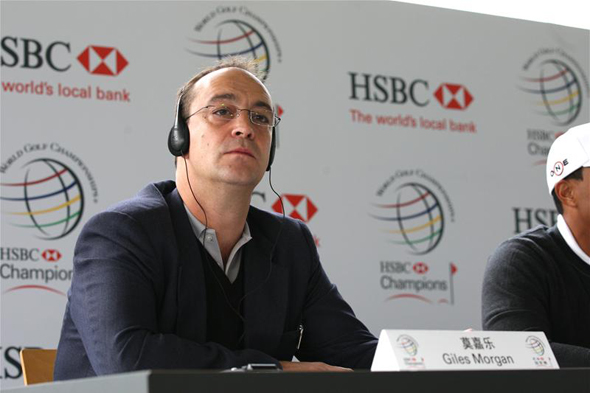iSportconnect Special – Sport and Sponsorship
June 1, 2016
Ahead of a busy summer of sport, iSportconnect has examined the challenges facing sponsorship in sport.
For many brands, they are trying to speak to an audience which is becoming more fragmented than ever, and less willing to engage content they feel ambivalent to.
Former CEO of McLaren, and current CEO of Ben Ainslie Racing, Martin Whitmarsh, feels that problem brands have is that they have grown to such a size, they struggle to make a personal impact.
“For brands, we are in this global world, and they are so large, so ubiquitous, I think people lose connection with them. I think sport is a way that we can give some emotional context and some emotional connection…They can really connect and tell a story with their consumers. That’s something that a lot of brands realise.”
“They may be so big it may be difficult for consumers to understand what they are about. They really need to tell stories that their consumers understand and relate to, they can really demonstrate how they make a difference.”
Giles Morgan, Group Head of Sponsorship & Events at HSBC, also felt the narrative is key. Unless brands were speaking the language of the fans, their message wouldn’t get through.

“Sponsorship isn’t really a badging device. You do get, by definition, incremental benefit from having your logo plastered on TV or whatever.”
“But for us it is about the language of the fan, the language of the person we are interested in talking to. For good brands, that sponsor well, that means talking through your own channels.”
“Whether that be through sales distribution, whether that be through hospitality, whether it be to your staff, whether it be to the broader fan. You need to engage in the language of that which you are sponsoring, that requires significant investment.”
Ultimately there is a rich market to tap into fans’ love of a club, team or competition.
But sponsors are sometimes too message oriented to really see what fans want from a sponsor associated to their club. Pivot Sport’s CEO Teresa Aguilar outlined what fans expect:
“You have to think about smart ways to communicate with fans. At the end of the day the connection between the fans and the club is incredible. You have to use that connection to create spaces, things and products that the fans really want to engage with, that they will want to participate in, rather than just being bombarded by communication that they don’t really want or need.”

For Whitmarsh the message should be focussed around emotion, and successfully tapping into it.
“Sport is about emotion. That’s why we all love sport. That emotion is what we, as teams, have to get involved with. That’s really what these brands that invest in us [the teams] want to exploit.”
So what does the future hold? For Morgan, brands will continue to aggressively move into the digital space.
“If you watch how people consume their sports, whether it be at live events, or watching on their sofa at home, people are second or even third screening.”
“You have the live event, then people talking and engaging with iPads or iPhones, or whatever it may be.”
“How that evolves, and it’s evolving all the time, is where you are going to see most of the investment from brands, who want to talk to those people sitting on their sofa, engaged in their passion.”

For Pivot Sports, they see teams starting to engage with multiple sponsors, working in a specific territory, all working under the brand of the club.
“Sponsors want more information about who they are talking to and who they are communicating to.”
“It’s a big opportunity for clubs, until now the club may have just been looking for a sponsor to go on the shirt, or on the stadium.”
“What digital assets do is they open up the opportunity to have more partners in different parts of the world, each of them talking to different groups of fans, all part of one brand. I think it’s a great opportunity for both of them. It’s an area that we are very excited about, and are investing a lot in understanding and creating opportunities.”
“The one thing you have to be very careful about is how to execute it. No-one wants to see 20 junk emails in their inbox.”
The key message seems to be that fans are more selective than ever about what content they do or don’t engage with. It means sponsors have to work harder on the message they want to get to fans, and making sure it resonates with what they are passionate about.
{jcomments on}


